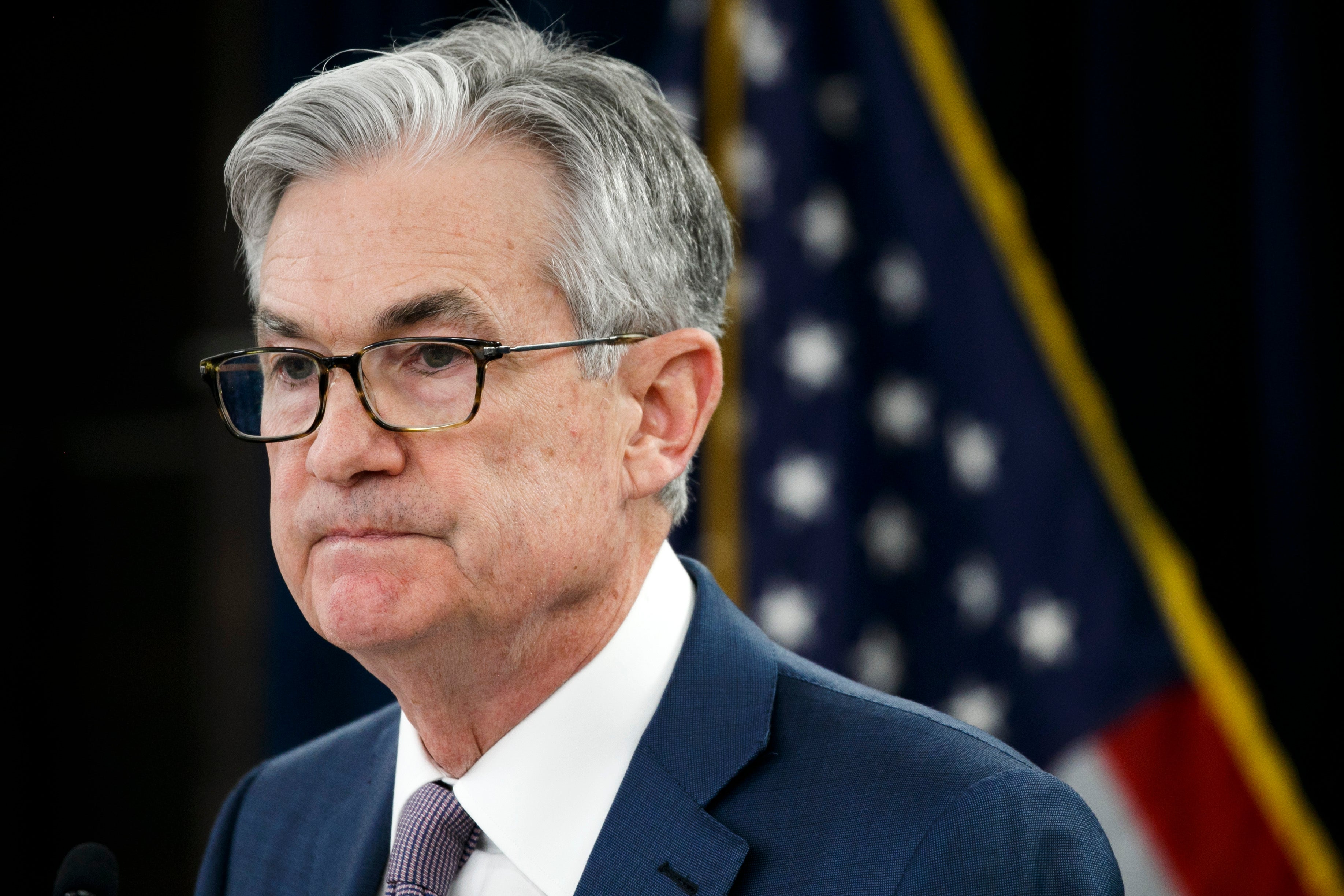Fed's Powell says surge in virus cases threatens US economy
Federal Reserve Chair Jerome Powell says the surge in confirmed coronavirus cases across the country could slow the economy in the months ahead by discouraging consumers from spending

Your support helps us to tell the story
From reproductive rights to climate change to Big Tech, The Independent is on the ground when the story is developing. Whether it's investigating the financials of Elon Musk's pro-Trump PAC or producing our latest documentary, 'The A Word', which shines a light on the American women fighting for reproductive rights, we know how important it is to parse out the facts from the messaging.
At such a critical moment in US history, we need reporters on the ground. Your donation allows us to keep sending journalists to speak to both sides of the story.
The Independent is trusted by Americans across the entire political spectrum. And unlike many other quality news outlets, we choose not to lock Americans out of our reporting and analysis with paywalls. We believe quality journalism should be available to everyone, paid for by those who can afford it.
Your support makes all the difference.Federal Reserve Chair Jerome Powell said Tuesday that the nationwide surge in confirmed coronavirus could slow the economy in the months ahead by discouraging consumers from spending
“We’re seeing states begin to impose some activity restrictions," Powell said in an online discussion with the Bay Area Council, a San Francisco-based business group. “The concern is that people will lose confidence in efforts to control the pandemic, and ... we’re seeing signs of that already.”
While Powell did not elaborate, the government reported earlier Tuesday that retail sales grew just 0.3% in October, the smallest gain since the pandemic sent sales plunging nearly 15% in April. A measure of consumer confidence has also declined this month.
And JPMorgan says that consumer spending fell earlier this month compared with mid-October, according to activity on 30 million of its credit and debit cards that it anonymously tracks.
Powell said the threat also means that Congress and the White House should provide more stimulus spending to support the unemployed, states and cities, and small businesses, and to keep the economy afloat. Powell has repeatedly called for more government spending as have many other Fed officials.
“There hasn’t been a bigger a need for it in a long, long time here," he said.
He also warned that even when the economy fully recovers, likely after a vaccine is distributed, some industries will likely remain weaker than they were before the pandemic. That could force many of those still unemployed to find work at a new company or in an entirely different industry. Those transitions might also require government support, he said.
“We’re not going back to the same economy, we’re going back to a different economy,” he said. “That’s going to mean that those people who worked in the service industry, they may need help and support for a time as they find work in new places.”